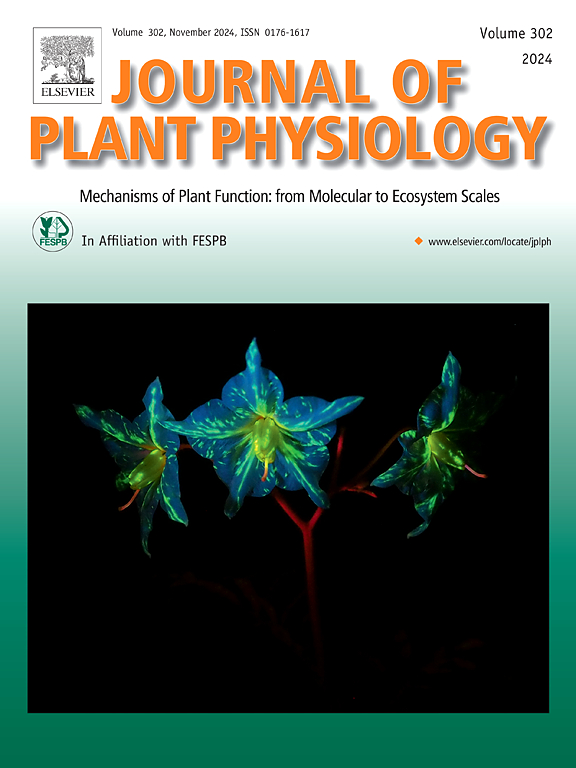Exploring the complexities of rice iron toxicity: Paradoxes, mechanisms, and strategic deliberations
IF 4.1
3区 生物学
Q1 PLANT SCIENCES
引用次数: 0
Abstract
Iron (Fe) toxicity in rice presents a paradox: excessive soil Fe2+ in tropical flooded soils reduces yields by 15–30 %, yet edible grains remain Fe-deficient, worsening global “hidden hunger”, which affects 1.72 billion people. This paradox arises from inefficient Fe translocation from roots to grains and complex research landscapes: field, pot, and hydroponic studies yield conflicting tolerance rankings, hindering mechanistic insights. Potassium (K) mitigates Fe toxicity in some cultivars but shows inconsistent effects across fertilizer forms and growth stages. Biofortification efforts face trade-offs between enhancing grain Fe and avoiding toxicity. Key challenges include the lack of a unified research framework, incomplete identification of Fe-transporter genes, and limited microbial fertilizer applications. This review synthesizes mechanisms, evaluates methods, dissects K-Fe interactions, and proposes breeding strategies.
探索水稻铁毒性的复杂性:悖论、机制和战略考虑
水稻中的铁(Fe)毒性呈现出一个悖论:热带淹水土壤中过量的土壤Fe2+使产量减少了15 - 30%,但可食用谷物仍然缺铁,加剧了全球“隐性饥饿”,影响了17.2亿人。这种矛盾源于铁从根到粒的低效转运和复杂的研究景观:田间、盆栽和水培研究产生了相互矛盾的耐受性排名,阻碍了对机制的了解。钾(K)在某些品种中减轻铁毒性,但在不同的施肥形式和生育阶段表现出不一致的效果。生物强化的努力面临着提高粮食铁和避免毒性之间的权衡。主要的挑战包括缺乏统一的研究框架,不完整的铁转运基因鉴定,以及有限的微生物肥料应用。本文综述了其机制的综合、方法的评价、K-Fe相互作用的剖析以及育种策略的提出。
本文章由计算机程序翻译,如有差异,请以英文原文为准。
求助全文
约1分钟内获得全文
求助全文
来源期刊

Journal of plant physiology
生物-植物科学
CiteScore
7.20
自引率
4.70%
发文量
196
审稿时长
32 days
期刊介绍:
The Journal of Plant Physiology is a broad-spectrum journal that welcomes high-quality submissions in all major areas of plant physiology, including plant biochemistry, functional biotechnology, computational and synthetic plant biology, growth and development, photosynthesis and respiration, transport and translocation, plant-microbe interactions, biotic and abiotic stress. Studies are welcome at all levels of integration ranging from molecules and cells to organisms and their environments and are expected to use state-of-the-art methodologies. Pure gene expression studies are not within the focus of our journal. To be considered for publication, papers must significantly contribute to the mechanistic understanding of physiological processes, and not be merely descriptive, or confirmatory of previous results. We encourage the submission of papers that explore the physiology of non-model as well as accepted model species and those that bridge basic and applied research. For instance, studies on agricultural plants that show new physiological mechanisms to improve agricultural efficiency are welcome. Studies performed under uncontrolled situations (e.g. field conditions) not providing mechanistic insight will not be considered for publication.
The Journal of Plant Physiology publishes several types of articles: Original Research Articles, Reviews, Perspectives Articles, and Short Communications. Reviews and Perspectives will be solicited by the Editors; unsolicited reviews are also welcome but only from authors with a strong track record in the field of the review. Original research papers comprise the majority of published contributions.
 求助内容:
求助内容: 应助结果提醒方式:
应助结果提醒方式:


